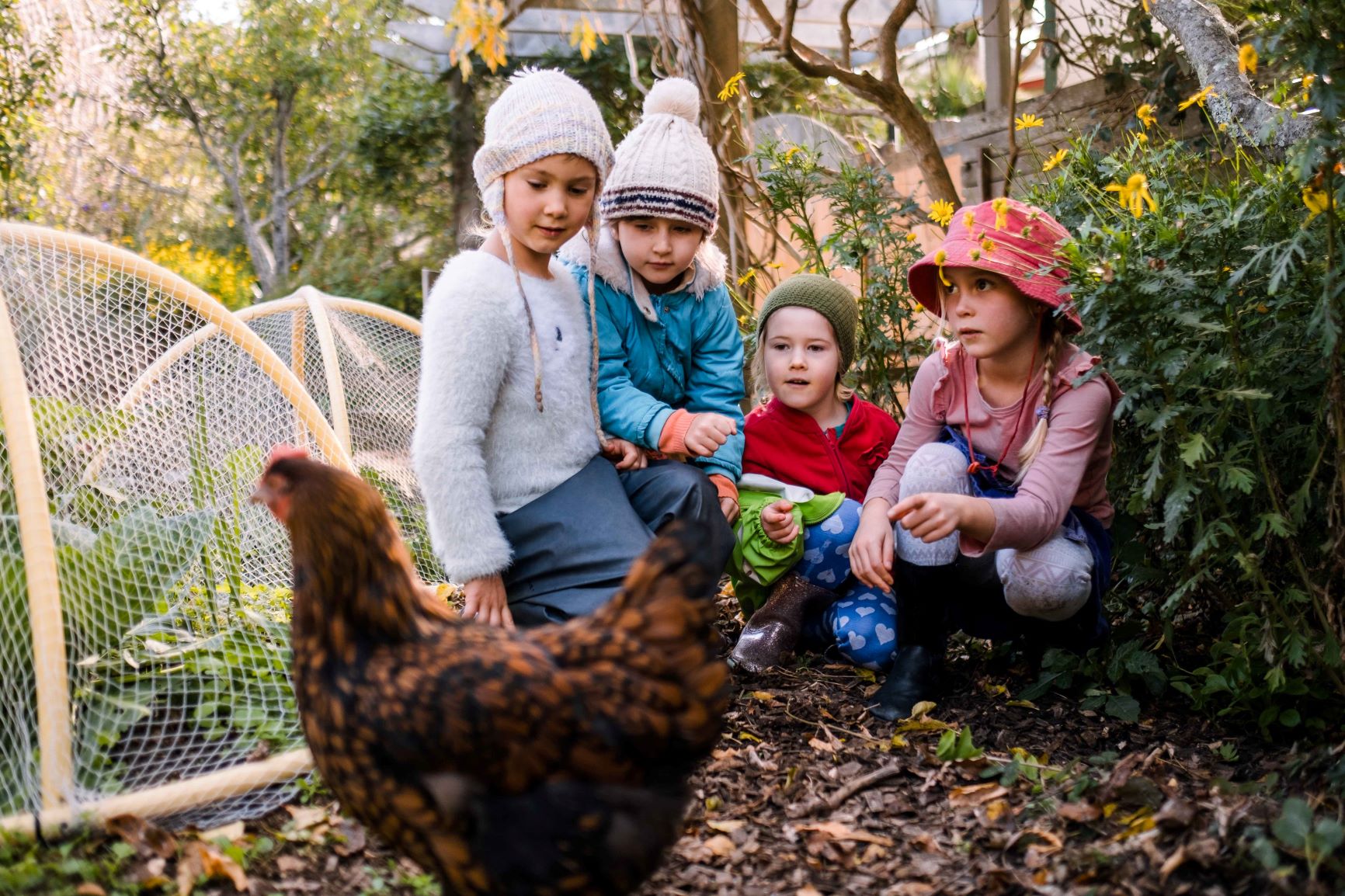Many parents with young children approaching school age will be asking themselves, what is the right type of school for my child?
With this in mind we have outlined some key points on what to consider when choosing a the right school for your child and family. It’s also great to visit different schools in your area to get a feel for how they work, their values, and to meet the teachers and Principal if you can. The Ministry of Education also has some guidelines for parents and information about the different schools in New Zealand.
We believe Steiner/Waldorf education has wonderful holistic benefits for children and encourages parents to learn more about what we offer in our New Zealand schools. We also discuss the unique attributes and benefits of Steiner/Waldorf education in this article.
Key questions for parents to consider when choosing a school
- Do you want an academic or holistic approach to your child’s first experience of formal education?
- Is it important to you that your child has fun at school, as well as learning?
- Is it important to you that the values that the school espouses are evident in the staff, child and community behaviours?
- Is it important to you that the school you choose is within walking distance of home?
- Do you want to know that bullying is dealt with swiftly and decisively?
- Does your child have any particular interests or needs that you would like to ensure the school can support?
- What levels of digital/technology use in the classroom are you happy with?
- What is the school environment like? The classrooms, shared facilities and the outside play areas.
The unique attributes of Steiner education
 Steiner/Waldorf education has a holistic approach to education, focusing on the whole person, with the goal to strengthen the child to meet, not only the challenges of school, but those of life.
Steiner/Waldorf education has a holistic approach to education, focusing on the whole person, with the goal to strengthen the child to meet, not only the challenges of school, but those of life.
Janet Molloy, CEO, Steiner Education New Zealand (SEANZ), says that children innately learn through music, art, movement, play and story.
“Just watch a three-four year old and you will witness this for yourself. We capitalise on these innate needs and teach all academic subjects with some element of the arts so that children are learning naturally,” says Janet.
Children are introduced to technology slowly and in line with the historical development of the technologies, with computer technology arriving in the curriculum around the age of 13 or 14. Until then, they will learn about how the computer sciences arose in other ways.
The main benefits of Steiner education
The Steiner Education curriculum provides a wide range of subjects including; history, geography, technologies such as woodwork, handwork and gardening, science, engineering, building, mathematics and at least one other language as well as English.
“We have found that our literacy and numeracy skills by age 13 are above the national average. We tend to concentrate more on formative assessments which give the teacher an understanding of what is needed to help the children to develop their skills. Steiner teachers’ have a great understanding of child development, and this is crucial to bringing the right teachings to the classroom at the right time.” says Janet Molloy.
Steiner schools differ from other schools in that lessons are specifically designed to support healthy and balanced physiological, emotional and cognitive development. Research has shown that chronic stress impedes learning; the focus in Steiner classrooms is on curiosity, joy, connection to others and love of learning. The by-product of this is that students are then in a favourable position to flourish academically.
The Institute of HeartMath in California’s TestEdge Studies shows that children who spend time during their day in ‘high coherence’ which involves actively experiencing love or gratitude, succeed not only in reducing stress and test anxiety, but in increasing their heart rhythm coherence and improving test scores on a standardised Language Arts test.
Dr Shelley Davidow, a lecturer in curriculum and pedagogy in the School of Education at the University of the Sunshine Coast, worked with the Institute of HeartMath for two years, investigating the impact of different educational environments on children’s autonomic nervous systems. The (as yet unpublished) study found that children in one Steiner school in the USA appeared to have overall less sympathetic nervous system activity (fight-or-flight response) as a baseline compared to students in other public and private school settings. You can read more about Dr Davidow’s research here.
How parents can support their children from home
We believe, the very best support that parents can give their children is a stable home with regular and predictable rhythms to the day and the week. Reciting nursery rhymes and singing to young children and reading age-appropriate stories all help to develop pre-literacy and oral language skills. It’s also a time for the parent and child to bond and will be remembered with fondness as the child develops into adulthood.
The national library of New Zealand has some great tips and resources on reading at home for children and teenagers.
If you would like to know more about Steiner Education please contact us.
For a directory of Steiner/Waldorf education providers in New Zealand please click here